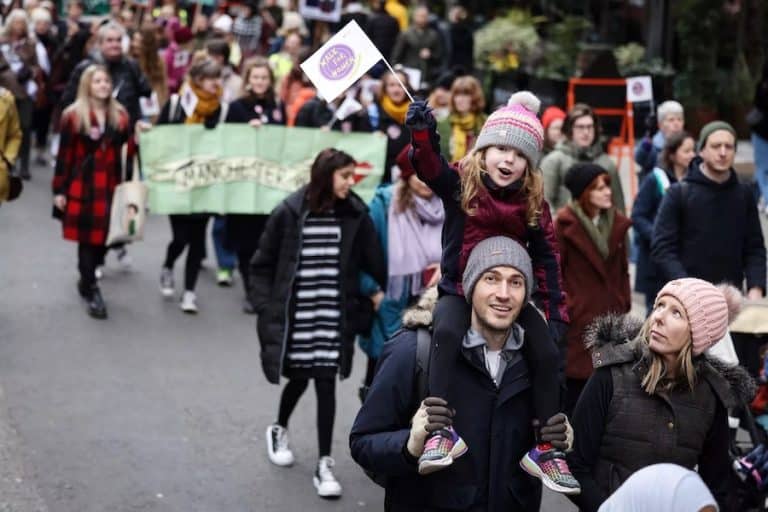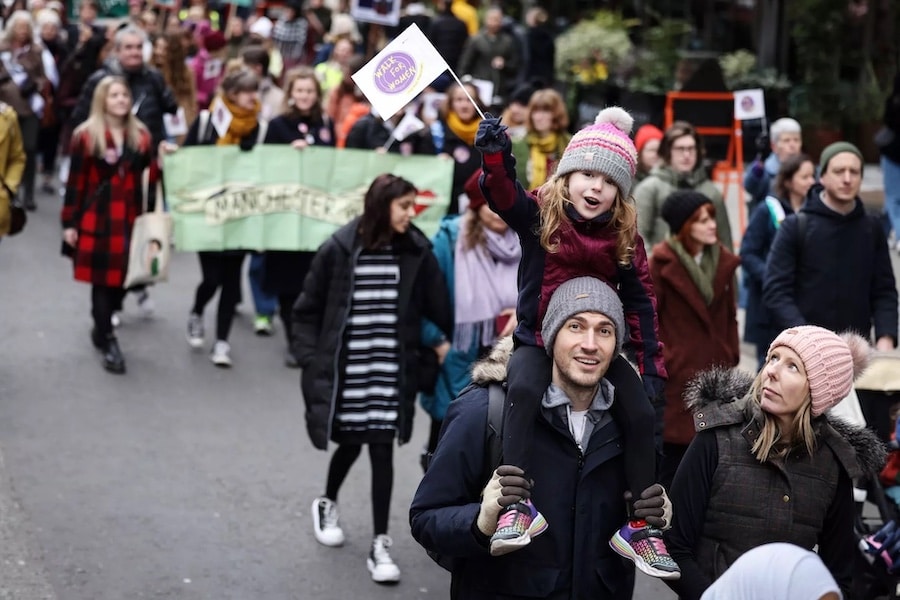Thousands of Manchester children to get food vouchers over Easter holidays
- Written by I Love MCR
- Last updated 4 years ago
- Community, Family & Kids

Around 39,000 children and their families in Manchester are set to benefit from a helping hand over the next few weeks to make sure children don’t go hungry over the school Easter holidays and May half term.
The council has agreed to extend free school meal provision to the value of £15 per week per eligible child during the upcoming holidays to help offset the difficulties many families are facing due to the continuing pandemic, and that many others were already facing even before COVID kicked in last March.
Unless they are newly eligible for free school meals – in which case they should let their school know – parents don’t need to do anything in order to receive the holiday support.
Schools will contact all their eligible families direct over the next couple of weeks to arrange the support and distribute any vouchers.
Throughout the last year, the council has been at the forefront of the response to the coronavirus pandemic in the city – and this includes stepping in to provide support for children eligible for free school meals and their families twelve months ago during the Easter 2020 school break and again in the October half term holiday, when no national support for them was made available.
The council continued to provide this much-needed support to families throughout the Christmas break and recent February half term.
It means that by May, the council will have helped dish up the equivalent of around 1.75 million free meals over the last year to children and young people to help go some way towards tackling school holiday hunger.
The latest available data shows that in October approximately 32.4k children and young people at Manchester schools were eligible for free school meals – which is around 37% of all pupils in the city’s schools.
This is an increase of around 2,000 since the start of the pandemic back in March last year.
Due to the ongoing economic impact of the pandemic this number is expected to rise even higher, so contingency has been set aside to make sure that no family that becomes eligible for support between now and May half term misses out.
As well as making sure all those pupils currently eligible for free school meals don’t go hungry over the holidays, the council’s Easter and May offer also includes other children and young people who are not usually considered for support under any national scheme, but who the council nevertheless undertook to support during the Christmas and February half term holidays.
These include school sixth-formers whose families meet the criteria for free school meals or who previously accessed free school meals when they were under 16, and an estimated 7,000 additional children aged under five who attend early years settings and whose families meet the criteria for free school meals and who may be vulnerable during the holidays due to the setting’s closure.
The scheme will also support children in vulnerable families known to schools who are outside the scope of free school meals but where an early help assessment has identified that they require extra support during the school holidays.
Other beneficiaries who will also be supported through the scheme include care-leavers, children of families that are classed as having no recourse to public funds, asylum seekers and refugee children, and nursery-age children who currently do not receive free school meals but who would be eligible for them.
“Government have consistently been slow to confirm they will support children with free school meals throughout the holidays – leading to confusion and worry for many families,” said Councillor Garry Bridges.
“We want our families to know they are not alone through this pandemic and that’s why we’re once again going to be funding free school meals for all eligible children over the Easter and May half term holidays.
“These last nine months have had a massive impact on so many of our families and young people, lots of whom were already struggling to put food on the table well before COVID kicked in.
“With a staggering 1.75 million free meals dished up by us alone here in Manchester during school holidays this last year, it’s abundantly clear that what must be served up next is a long-term national plan to properly address holiday hunger – which will continue to adversely affect children and their life chances unless real action to end it is taken now.”
- This article was last updated 4 years ago.
- It was first published on 24 March 2021 and is subject to be updated from time to time. Please refresh or return to see the latest version.
Did we miss something? Let us know: [email protected]
Want to be the first to receive all the latest news stories, what’s on and events from the heart of Manchester? Sign up here.
Manchester is a successful city, but many people suffer. I Love Manchester helps raise awareness and funds to help improve the lives and prospects of people across Greater Manchester – and we can’t do it without your help. So please support us with what you can so we can continue to spread the love. Thank you in advance!
An email you’ll love. Subscribe to our newsletter to get the latest news stories delivered direct to your inbox.
Got a story worth sharing?
What’s the story? We are all ears when it comes to positive news and inspiring stories. You can send story ideas to [email protected]
While we can’t guarantee to publish everything, we will always consider any enquiry or idea that promotes:
- Independent new openings
- Human interest
- Not-for-profit organisations
- Community Interest Companies (CiCs) and projects
- Charities and charitable initiatives
- Affordability and offers saving people over 20%
For anything else, don’t hesitate to get in touch with us about advertorials (from £350+VAT) and advertising opportunities: [email protected]

Former site of ‘death trap’ mill to be turned into new neighbourhood




















